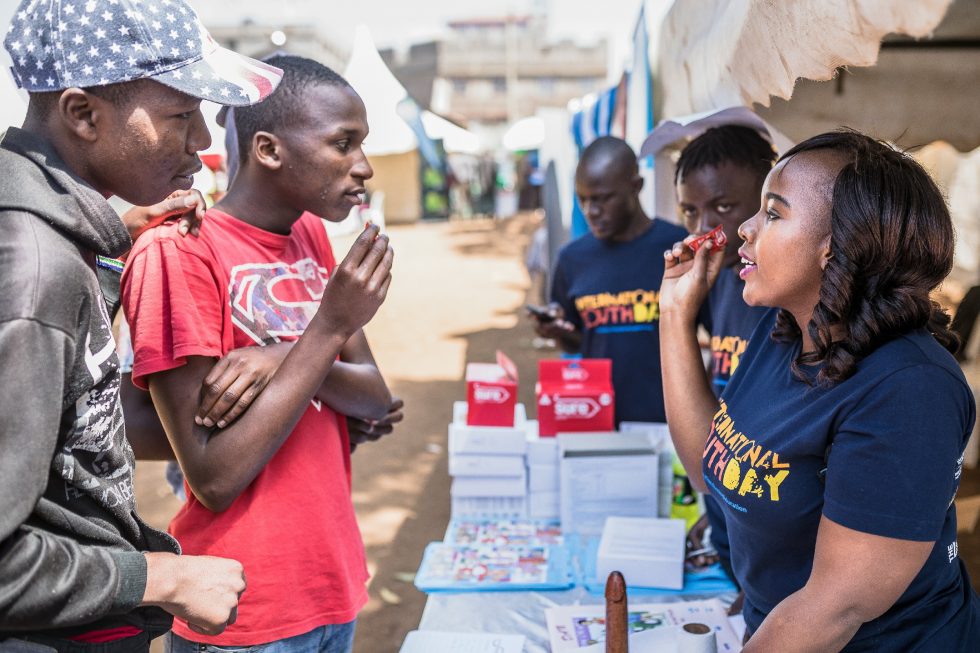Lifting of Mexico City policy good for reproductive healthcare in Kenya

In the last one month, Kenyans have been treated to a heated debate on reproductive health triggered by the second reading of the reproductive healthcare bill at the senate.
The most contentious provisions of the bill have been those on the right of adolescents to access sexual and reproductive healthcare as well as those on termination of pregnancy.
Consequently, the bill has been inaccurately branded the abortion bill by some opponents, and a law designed to license adolescents to have sex by others. This campaign of misinformation triggered the senate to call for further public participation on provisions of the bill.
The constitutional right to reproductive healthcare
The right to health is a fundamental human right guaranteed in the Constitution of Kenya. Article 43 (1) (a) of the Constitution provides that every person has the right to the highest attainable standard of health, which includes the right to health care services, including reproductive health care.
The proposed reproductive healthcare bill, Senate Bills no. 23 of 2019 gives Parliament and Kenyans an opportunity to bring life to article 43 (1) (a) of the Constitution of Kenya (2010).
The bill seeks to flesh out the details of what the highest standard of reproductive healthcare means. It covers areas of reproductive healthcare such as access to family planning, assisted reproduction, safe motherhood, termination of pregnancy, and the reproductive health of adolescents.
Sexual and reproductive health key to overall health
The United Nations Population Fund (UNFPA) offers one of the most compelling explanations as to why sexual and reproductive health is essential: Good sexual and reproductive health is a state of complete physical, mental and social well-being in all matters relating to the reproductive system. Good sexual and reproductive health means that people are able to have a satisfying and safe sex life, the capability to reproduce, and the freedom to decide if, when, and how often to do so.
To maintain one’s sexual and reproductive health, people need access to accurate information and the safe, effective, affordable and acceptable contraception method of their choice. They must be informed and empowered to protect themselves from sexually transmitted infections. And when they decide to have children, women must have access to services that can help them have a fit pregnancy, safe delivery and healthy baby/babies.
For too many Kenyan women and girls, reproductive health is the most debilitating barrier to their well-being. Kenya has an unacceptably high maternal mortality rate. Maternal mortality ratio for Kenya stands at 342 deaths per 100,000 live births, well above the global rate of 210 deaths per 100,000. Between 5,000 and 7,000 women die every year due to complications during pregnancy or related to childbirth in Kenya[1].
Unsafe abortion remains a leading cause of deaths and injuries related to pregnancy in Kenya. The 2014 Kenya Demographic Health Survey shows that unsafe abortions account for 35 percent of the maternal deaths. An estimated 2,600 women die from unsafe abortions annually, translating to seven deaths a day according to a study by the African Population and Health Research Centre (APHRC) and the Ministry of Health (MoH).
One in five adolescents (18 percent) in Kenya become pregnant, irreversibly affecting their health and socio-economic well-being for life.
Actualising the right to the highest standards of reproductive healthcare Article 43 (1) (a) of the Constitution of Kenya (2010) by passing a good reproductive healthcare bill such as the one proposed by Senator Susan Kihika, gives us a good shot at reversing these shameful and negative trends.
Socio-economic benefits of good reproductive healthcare
Women of reproductive age who have access to high-quality reproductive healthcare are likely to lead a higher quality of life. They have a better chance of pursuing education and earning a higher income, benefitting their families and communities. Moreover, these women are able to participate in shared activities in their communities.
Despite the differing points of view in the whole debate on reproductive healthcare in Kenya, the most important thing to be clear about is that the right to reproductive healthcare is not only a constitutional obligation, it is also the right policy decision to implement.
This article was written by Evelyn Samba. Ms. Samba is the Kenya country director at Deutsche Stiftung Weltbevoelkerung (DSW)





